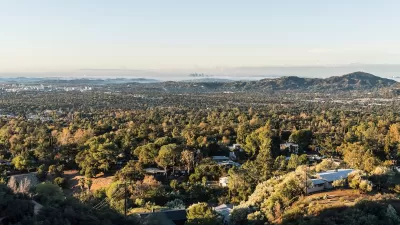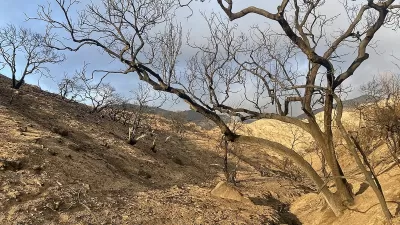The UCLA Luskin Center for Innovation offers expert guidance on LA wildfire response and recovery, addressing critical issues like water safety, air quality, equitable rebuilding, and climate adaptation to promote resilience and sustainability.

The UCLA Luskin Center for Innovation is offering expert guidance to support Los Angeles in addressing the immediate and long-term challenges posed by recent wildfires. The center’s experts are available to provide insights into key areas, including water supply and quality, air quality impacts, equitable land use and recovery planning, and the governance and politics of disaster response. Their goal is to help policymakers and communities navigate this crisis with evidence-based strategies that prioritize resilience, equity, and sustainability.
Gregory Pierce, co-executive director of the Luskin Center, emphasizes the need for improved coordination in water testing, treatment, and public communication to ensure safety and trust in drinking water systems impacted by wildfires. Rachel Connolly, an air quality and environmental equity researcher, highlights the dangers of wildfire smoke, recommending N95 masks, air purifiers, and updated school HVAC systems while advocating for better air quality monitoring tools to address toxic pollutants released during urban fires.
Land use and recovery planning are also priorities, with Megan Mullin urging a community-driven approach to rebuilding that prioritizes equitable investment and resilience rather than exacerbating existing inequalities. Edith de Guzman, a specialist in water equity and climate adaptation, brings critical expertise on the effects of extreme weather, such as the erratic Santa Ana winds that fueled the fires, underscoring the need for adaptive infrastructure and policies to mitigate future risks.
By addressing these interconnected challenges, the UCLA Luskin Center provides a comprehensive resource for leaders and residents. Their insights on disaster governance, the politics of response, and the broader impacts of climate whiplash aim to equip Los Angeles with the tools needed to recover from the immediate crisis while building long-term resilience against climate-driven disasters.
FULL STORY: UCLA Luskin Center for Innovation Research and Commentary on the LA Fire Response and Recovery

Trump Administration Could Effectively End Housing Voucher Program
Federal officials are eyeing major cuts to the Section 8 program that helps millions of low-income households pay rent.

Planetizen Federal Action Tracker
A weekly monitor of how Trump’s orders and actions are impacting planners and planning in America.

The 120 Year Old Tiny Home Villages That Sheltered San Francisco’s Earthquake Refugees
More than a century ago, San Francisco mobilized to house thousands of residents displaced by the 1906 earthquake. Could their strategy offer a model for the present?

Washington State Legislature Passes Parking Reform Bill
A bill that would limit parking requirements for new developments is headed to the governor’s desk.

Missouri Law Would Ban Protections for Housing Voucher Users
A state law seeks to overturn source-of-income discrimination bans passed by several Missouri cities.

Op-Ed: Looking for Efficiency? Fund Intercity Buses
Much less expensive than rail, intercity buses serve millions of Americans every year, but public subsidies are lacking.
Urban Design for Planners 1: Software Tools
This six-course series explores essential urban design concepts using open source software and equips planners with the tools they need to participate fully in the urban design process.
Planning for Universal Design
Learn the tools for implementing Universal Design in planning regulations.
Ada County Highway District
Clanton & Associates, Inc.
Jessamine County Fiscal Court
Institute for Housing and Urban Development Studies (IHS)
City of Grandview
Harvard GSD Executive Education
Toledo-Lucas County Plan Commissions
Salt Lake City
NYU Wagner Graduate School of Public Service





























